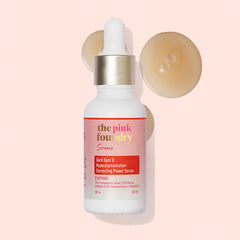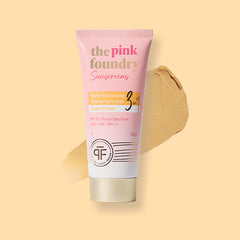What is Liquorice Extract?
Licorice extract is a natural ingredient derived from the root of the licorice plant (Glycyrrhiza glabra). It has been used for centuries in traditional medicine due to its various potential health benefits. In the context of skincare, licorice extract is valued for its skin-brightening and soothing properties.
Licorice extract can be found in various skincare products, including cleansers, toners, serums, and creams. As with any skincare ingredient, its effectiveness can vary from person to person, and results may take time to become apparent.

Meaning of Liquorice Extract
Licorice extract, also spelled as "liquorice extract," is a natural ingredient derived from the root of the licorice plant (Glycyrrhiza glabra). In skincare, licorice extract is known for its various beneficial properties, making it a popular ingredient in a range of cosmetic and skincare products.
Licorice extract is commonly found in various skincare products, such as cleansers, toners, serums, moisturizers, and masks. Its natural and multifaceted benefits make it a versatile ingredient in the quest for healthier and more radiant skin.
Benefits of Liquorice Extract
Licorice extract offers several benefits for the skin, making it a popular ingredient in skincare products. Here are some of the key benefits of licorice extract in skincare:
- Skin Brightening: Licorice extract contains glabridin, which helps inhibit the production of melanin. This makes it effective in reducing hyperpigmentation, dark spots, and uneven skin tone, promoting a brighter and more radiant complexion.
- Anti-Inflammatory: Licorice extract has anti-inflammatory properties, helping to soothe and calm irritated skin. It can be beneficial for individuals with conditions such as redness, rosacea, or eczema, providing relief from discomfort and promoting a more even skin tone.
- Antioxidant Protection: The extract contains antioxidants that help protect the skin from oxidative stress caused by free radicals. This protection can reduce the signs of premature aging and damage from environmental factors like UV radiation and pollution.
- Moisturizing: Licorice extract has humectant properties, which means it helps the skin retain moisture. This can be particularly helpful for individuals with dry or dehydrated skin, contributing to improved skin texture and suppleness.
- Oil Regulation: Studies suggest that licorice extract may help regulate oil production in the skin. This makes it beneficial for individuals with oily or acne-prone skin, helping to control excess sebum and reduce the risk of breakouts.
- Wound Healing: Licorice extract has been studied for its potential wound-healing properties. It may promote the healing of minor cuts, abrasions, and other skin injuries.
- Anti-Acne Properties: Due to its anti-inflammatory and oil-regulating effects, licorice extract is sometimes included in formulations targeting acne-prone skin. It can help reduce inflammation associated with acne and contribute to a clearer complexion.
- Reduction of Redness: Licorice extract's anti-inflammatory properties can also help reduce redness and irritation associated with various skin conditions, contributing to a calmer and more even skin tone.
Related Blogs

Skin Minimalism: The Simple Skincare Routine You Need
TABLE OF CONTENTS What is Skin Minimalism? Benefits of Skin Minimalism Best Minimal Skincare Routine Skin...
Continue Reading
Ethyl Ascorbic Acid vs. L Ascorbic Acid: Which Vitamin C Form is Best for Your Skin?
TABLE OF CONTENTS Ethyl Ascorbic Acid vs L Ascorbic Acid: Key Differences Benefits of Each Form of Ascorbic Acid ...
Continue Reading
Best Anti-Aging Ingredients You Should Include in Your Skincare Routine
TABLE OF CONTENTS Best Anti-Ageing Ingredients for Skin How These Ingredients Work How to Use Anti-Ageing Ingredi...
Continue Reading
How Often to Use Salicylic Acid: Finding the Right Frequency for Your Skin
TABLE OF CONTENTS How Often Should I Use Salicylic Acid Serum? How Often to Use Salicylic Acid for Specific Skin Types ...
Continue Reading















